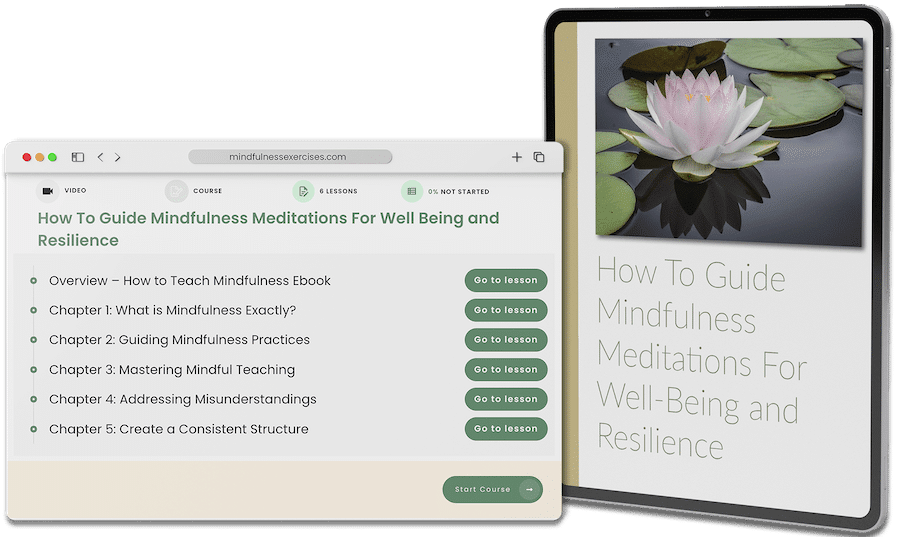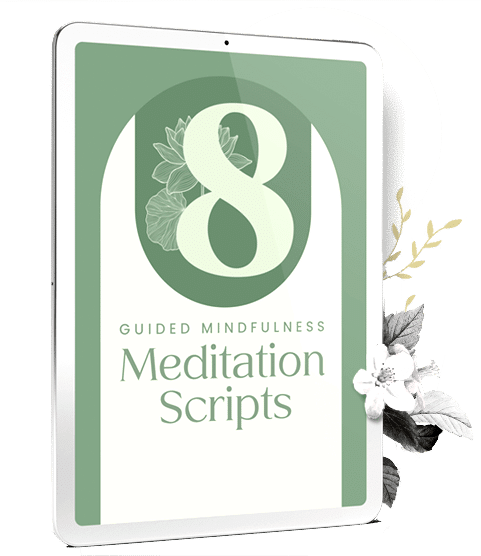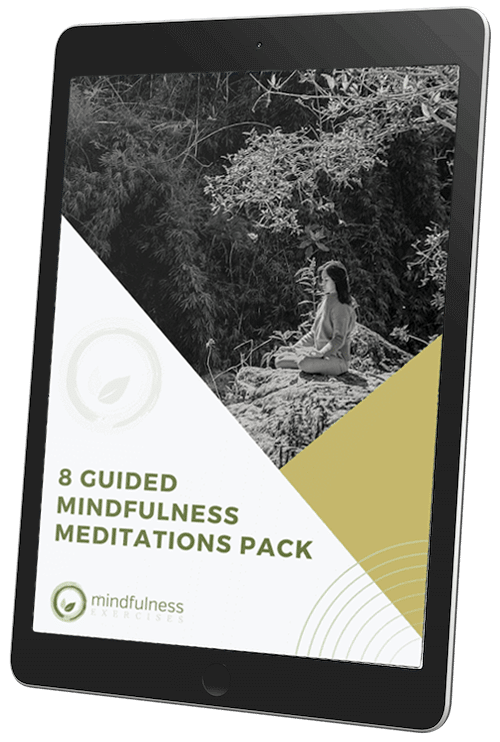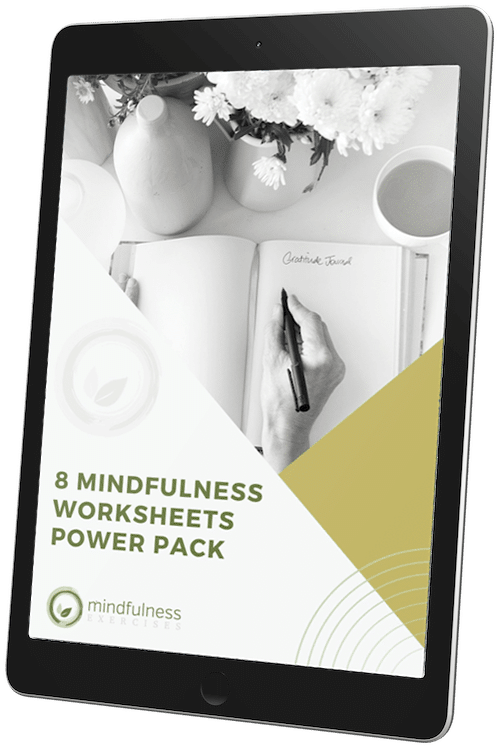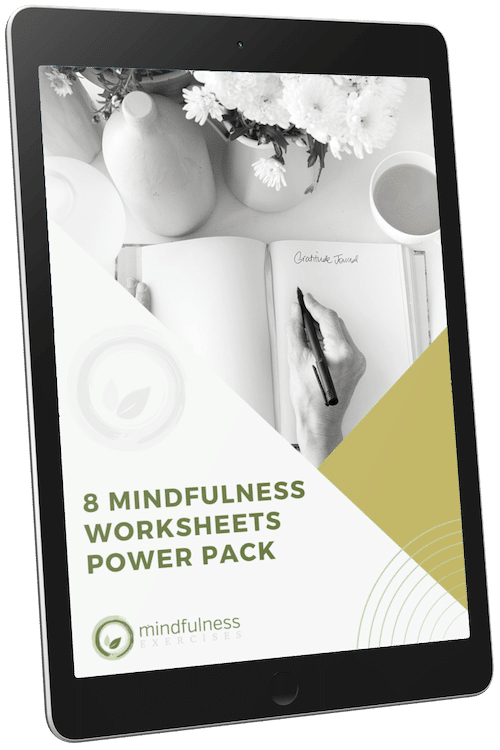If you are like one of the 164 million Americans that struggle to fall (or to stay) asleep at least once a week, you have likely considered a variety of techniques to improve your hours spent in slumber. From addressing dietary factors to infusing your room with the soothing scent of lavender, there are numerous ways we might try to increase our sense of inner calm before bed.Tranquil meditation sleep music is one of the tools we might explore. As it soothes the nervous system and influences brain waves (among other interesting mechanisms), it’s a science-backed method of mindfully improving sleep quality.In this comprehensive guide to tranquil meditation music for sleep, we’ll explore:
- How Music Impacts Wellbeing and Sleep
- What Are Binaural Beats?
- Tips for Using Meditation Sleep Music
- 7 Tranquil Sleep Meditation Tracks
- The Best Piece of Sleep Meditation Music
How Music Impacts Wellbeing and Sleep
First and foremost, we can start by considering that everything is made up of energy. From the food we consume to the conversations we engage in to the music we listen to, everything carries certain energetic frequencies that impact those it engages with.This isn’t just something that theory tells us; it’s something we have each experienced. Consider the effect that a piece of piano music has on your body and/or your mind. Then, think about effect of listening to heavy metal. These two types of music have very different frequencies and qualities that impact our state of being accordingly. In addition, we each have different taste for various types of music, which also plays a role in how we’re affected.

Science supports the understanding that music is hugely influential on various aspects of our experience. For instance:
1. Music impacts neurochemical mechanisms within the body that impact both mental and physical wellbeing.
Though most of us intuitively understand that music has a role to play in our sense of wellness, science is now beginning to understand why. Research conducted at the University of McGill found that music influences four primary domains: mood, stress, immunity, and social bonding. When it comes to stress, both listening to and playing music was shown to lower cortisol levels. This relates to sleep as lower cortisol levels are required to swiftly fall into slumber.
2. Different genres of music have different impacts on the body.
Not all genres of music are the same, as we pointed out earlier. More specifically, however, it’s suggested that: classical music enhances dopamine secretion and synaptic function; heavy metal creates a sense of identity; pop and rock music improves endurance and physical performance; and jazz soothes the physical body. However, it’s also been pointed out that our personal preferences impact the effect of certain styles of music – specifically on brain circuitry that is involved with empathy, self-awareness, and internal thought. So, jazz affects each one of us differently, as does pop, rock, and heavy metal.
3. Music supports our sense of community and togetherness.
Furthermore, music has strong cultural roots that connect us to our sense of self and community. This is something we can sense to be true, but it’s also been scientifically explored. In one study that looked at the role of music in the lives of young people in Kenya, the Philippines, New Zealand, and Germany, listening to music in families and in peer settings contributed to cohesion in both those regards. When we feel at home in our families and communities, it’s easier to rest well at the end of the day.
4. Studies have found that music can reduce sympathetic nervous system activity.
Additionally, music impacts sleep through its role in easing the fight-or-flight response. By lowering sympathetic nervous system activity, stress and anxiety levels decrease, blood pressure lessens, and both heart and respiratory rate come into balance. The study found that this promotes better sleep by easing muscular tension and distracting the mind from thoughts.
Since music has such a strong impact on our mind and body – and since it is both accessible and low-cost – tranquil meditation sleep music is an attractive option for all types of people who struggle to sleep. From soothing flute music to binaural beats, the range of meditation music for sleep provides something for all tastes.
What Are Binaural Beats?
As was just mentioned, a new term and technology has relatively recently entered the world of music and sleep: that is, ‘binaural beats’. But what are binaural beats anyway and how do they impact sleep?Binaural beats are used in many (but not all) meditation tracks for sleep. They’re not necessary for the listening experience to be a soothing one, though they are believed to influence our brain waves in positive and calming ways. As an emerging technology, binaural beats are just now being explored with depth. A form of sound wave therapy, these beats are said to directly impact our wellbeing.

But if you’re still wondering what this term means, a binaural beat is a slight difference in frequencies of two sound tones. It’s sometimes called an auditory illusion.For example, if your right ear detects a frequency of 130 Hz and your left ear takes in a frequency of 140 Hz, the difference between is the binaural beat. The difference should be subtle, which means no more than 30 Hz and the tones should be less than 1000 Hz each.Different binaural beats are said to have unique effects. When it comes to sleep, research suggests that frequencies under 10 Hz encourage the brain to produce the same waves – frequencies that are associated with sleep.
Tips for Using Meditation Sleep Music
Using tranquil meditation sleep music takes a bit of planning as we shouldn’t spend too much time scanning our devices before bed. The light emitted from our devices can influence our circadian rhythm, negatively impacting our ability to fall asleep.So, to find and use meditation music for sleep effectively, consider the following tips:

1. Explore the options during hours of daylight.
As mentioned, the light on our personal devices (and in our homes for that matter) impact our hormones by impeding the production of melatonin. Melatonin is the body’s sleep hormone, so we want to do our best to help the body in producing it before bed. Take some time to listen to sleep tracks before preparing for sleep, bookmarking them so that they’re easy to locate when needed.
2. Take your time to find what resonates with you.
Also, it’s important to take the time to find the tracks that most resonate with you. As was mentioned earlier, personal preferences play a role in the impact that a particular piece of music has. For example, if piano music doesn’t resonate with you, skip it. Opt for something different, considering nature sounds, flute music, or anything else that settles you.
3. Cover up your screens when you’re sleeping.
Even when our eyes are closed, light impacts our sleep cycle. If you’re listening to a track on your phone or computer, make sure the screen is covered so that your room is as dark as possible. If possible, set a timer or other setting on your device to turn off the piece of music or app after a certain length of time.
4. Know the contraindications of binaural beats.
Lastly but just as importantly, do some extra research before listening to binaural beats if you are going to take that route. As it’s a new technology, it’s not entirely clear if binaural beats are safe in all cases. Stick to music without these frequencies if you are pregnant, have a psychological disorder or take tranquilizers, have a heart condition, or are at risk of seizures. Children, too, should avoid tracks with binaural beats. Furthermore, these tracks should only be listened to when you are in a safe space to relax (i.e. not while operating heavy machinery).
7 Tranquil Sleep Meditation Tracks
If you’d like to begin or continue exploring meditation music as a tool for improving your sleep patterns, you might begin by considering these 7 tranquil tracks. Again, take the time to sit with whatever tracks you are considering to ensure that you end up with the right fit for your personal preferences.

1. Deep Sleep Meditation Music for Insomnia
This sleep track is composed with the seven solfeggio frequencies, corresponding with and helping to balance the seven major chakras. It is gentle and soothing and is a good place to begin if you are new to meditation music for insomnia or sleep in general.

2. Binaural Beats Sleep Meditation: Root Chakra Activation Music
Another sleep track made with the chakras in mind, this recording narrows in on the root chakra. It uses binaural beats and the 396 Hz solfeggio frequency to help address feelings of guilt and fear. It is a peaceful and uplifting track that helps us to ease the stress response as we move into deeper relaxation.

3. Relaxing Sleep Music
This 3-hour track features music by Peder B. Helland. Deeply soothing and restorative, it’s a wonderful musical option to help release worries as you drift off to sleep. The tones are steady throughout, making it a solid backdrop to rest your mind upon.

4. Sleep Music with Healing Waves and Harp Sounds
Another soothing track, this piece of meditation music features harp sounds and light waves. It is light and whimsical, helping to uplift and settle the spirit simultaneously. It was composed for the Jason Stephenson – Sleep Music channel.

5. Devi Prayer: Gentle, Peaceful Music
For those that find mantra music uplifting and soothing, Devi Prayer is a beautiful track worth considering as you drift off to sleep. Though not specifically for sleep, it is well-suited for the end of the day. The piece guides listeners into balance and tranquility, repeating mantras throughout.

6. Indian Flute Yoga: Calming Music
This soothing track is another piece that is a perfect fit for those moments before sleep. For those that love the sound of flute music, it’s a worthy consideration to make. The video paired with it is entrancing, though if you are trying to go to sleep you’ll have to come back to watch it in daylight hours.

7. 417 Hz Music to Wipe Out Negative Energy
Last but not least, this 9-hour long track is composed with the 417 Hz solfeggio frequency. It is said that this frequency helps to remove negative energy from the body, from the home and office, and from our thoughts and behavior. For those that would like this type of cleansing before sleep, it’s worth exploring. You might also begin by meditating upon this theme before settling in, and then letting the music carry you into slumber.
The Best Piece of Sleep Meditation Music
It might not come as a surprise, but the best piece of sleep meditation music is the one that works for you. We each have different preferences, needs, and desires so finding the right track is a personalized endeavor. Take your time to explore the tracks available to you.Bear in mind that there may be underlying causes of your sleep troubles that music alone won’t address. To learn more about the root causes of sleep concerns and to discover added tips for addressing these, you might like to explore the comprehensive guide on mindfulness exercises for sleep.As day turns to night, take your time to settle into sleep by putting the day’s efforts aside, turning off the lights, taking a few deep breaths, and hitting play on your chosen sleep track. Let the mind soften as you are carried away into peace, release, and tranquility.
References:
- https://www.consumerreports.org/sleep/why-americans-cant-sleep/
- https://www.mcgill.ca/newsroom/channels/news/major-health-benefits-music-uncovered-225589
- https://www.sciencedaily.com/releases/2017/04/170412181341.htm
- https://www.ncbi.nlm.nih.gov/pmc/articles/PMC4021113/
- https://www.ncbi.nlm.nih.gov/pubmed/18426457
- https://www.healthline.com/health/binaural-beats#potential-benefits
- https://onlinelibrary.wiley.com/doi/full/10.1111/j.1365-2044.2005.04287.x













